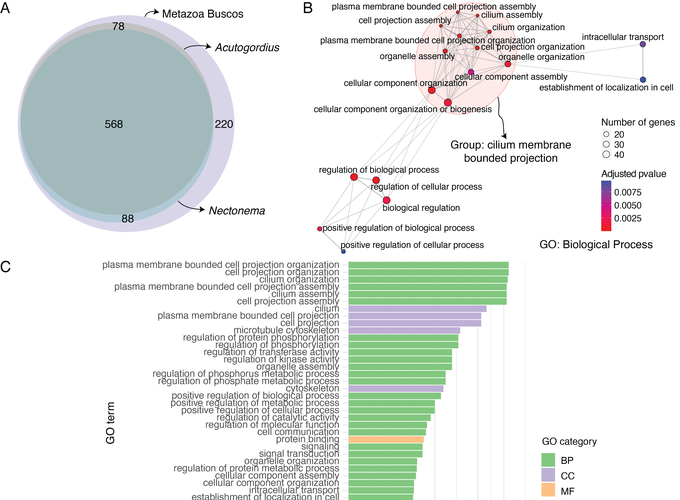Using portable technologies for long-read sequencing, we are assembling genomes of various non-model invertebrate phyla and investigating the genomic basis of key traits.
For parasitic hairworms (Nematomorpha), we generated the first genomes of the phylum, finding a surprising loss of about 30% of universal metazoan genes (Cunha et al. 2023 Curr Biol). By looking at the function of missing genes in other animals, we demonstrate that hairworms lack the genetic machinery to produce cilia, organelles conserved at an even broader scale, across protists and even some plants and fungi.
In the genome of meiofaunal penis worms (Priapulida), we have found a key molting gene previously only detected in Panarthopoda, suggesting a deeper origin of Halloween genes at the base of Ecdysozoa (Lord, Cunha et al. 2023 GBE). We have also learned how high repeat content, intron size inflation, and gene family expansion have shaped the gigantic genomes of velvet worms (Onychophora) (Sato, Cunha et al. 2023 GBE).
